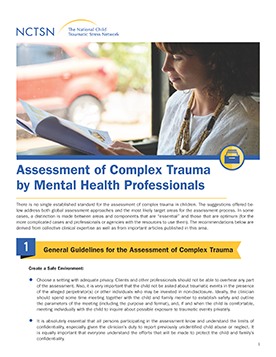
Assessment of Complex Trauma by Mental Health Professionals
Offers information on the assessment of complex trauma in children.
The following resources on Complex Trauma were developed by the NCTSN.

Offers information on the assessment of complex trauma in children.
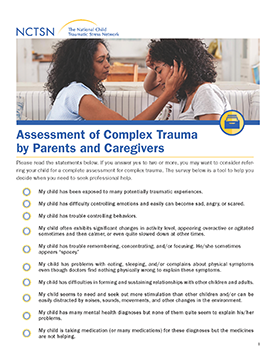
Offers parents and caregivers a brief checklist to use to determine if a complete assessment for complex trauma should be scheduled. This fact sheet will help parents and caregivers determine when to seek professional help.
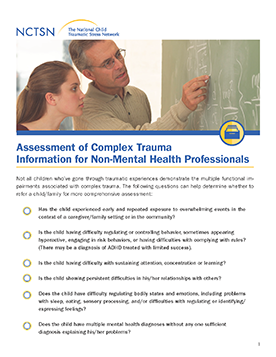
Provides information for non-mental health professionals regarding the assessment of complex trauma.
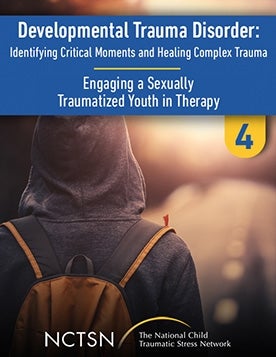
Depicts a youth who is referred to therapy after several weeks of unexplained sickness. This webinar shows a youth who was already seeing a therapist to work on recent difficulties in school and conflicts with his parents.
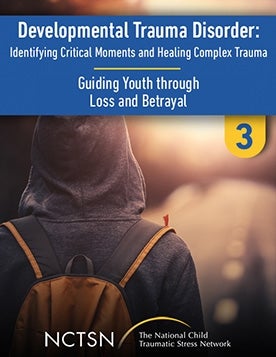
Depicts a client as she reveals, during her first therapy session, that she discovered her adoptive mother hid letters from her biological mother.
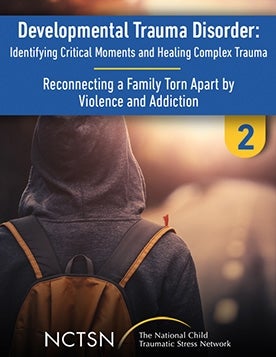
This webinar shows a therapy session with a family, two parents and their teenage daughter and son, who have been required to seek therapy after the parents had a physical altercation while intoxicated.
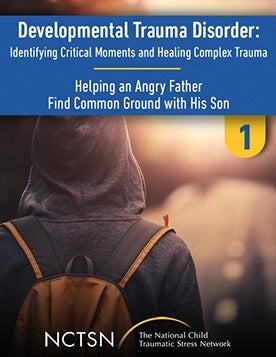
Depicts a father who has been physically violent in the past becoming intensely verbally angry, frightening and emotionally alienating to his son.

Provides clinicians, counselors, and other providers with insights on dealing with the most difficult crises and turning points that occur in therapy with traumatized children and families.
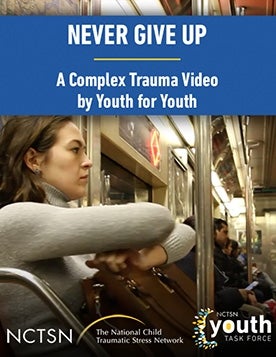
Features a highly diverse cast of seven adolescents and young adults who examine the shared and unique challenges faced, mistakes made, and growth attained in the struggle to transcend legacies of developmental trauma.

Discusses how families living in racially and economically segregated communities must also cope with the effects of historical trauma and intergenerational racism.
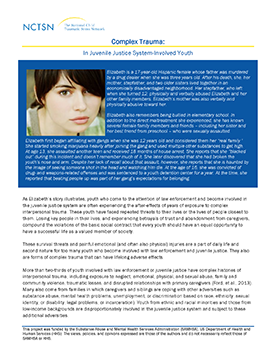
Delineates the path from complex trauma exposure to involvement in the juvenile justice system.
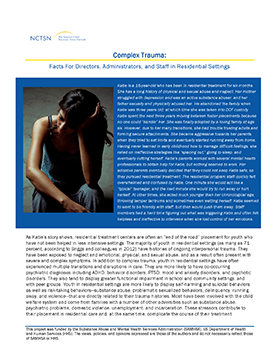
Provides information for staff in residential treatment centers on how to understand behavior through a trauma lens.